The new rules of fat loss
Six meals a day? No carbs ever again? Rubbish! Science has debunked these claims – we reveal the new fat-loss rules to follow
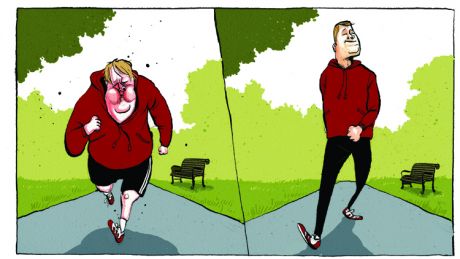
Sign up for workout ideas, training advice, reviews of the latest gear and more.
You are now subscribed
Your newsletter sign-up was successful
1. Old rule: You can never eat certain foods again
New rule: You can eat anything you want
Willpower is overrated. Swear you’ll never eat pizza again, and you’ll be drunk-dialling Papa John’s the first chance you get. Instead, allow yourself a cheat day: according to psychology professor Roy F Baumeister, telling yourself ‘Not now, but later’ is one of the best ways to stay on track with a diet. Gluttonous meals can provide a recharge for your powers of self-control – but don’t test them too severely: eat anything you want at one or two meals a week, and then make sure there are no tempting foods left in your house.
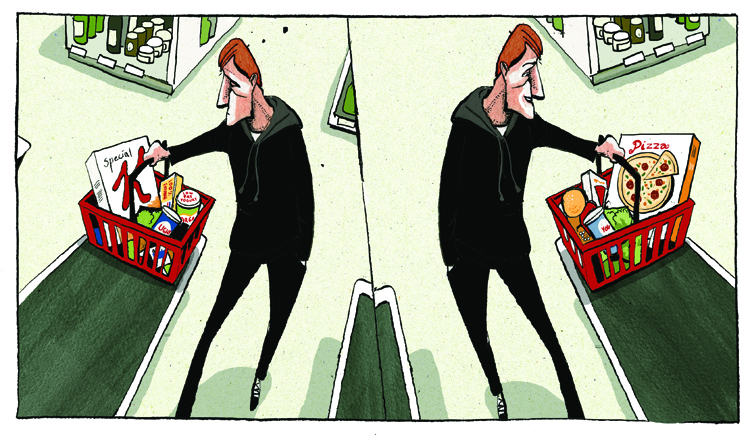
2. Old rule: Booze ruins fat loss
New rule: Booze can actually help
It’s a question most of us have asked: can you drink and still lose fat? Some studies suggest it’s not as deadly for fat loss as you might think. For starters, alcohol’s thermic effect is second only to protein’s – every gram contains seven calories, but you’ll burn roughly 1.5 of those just digesting it. Secondly, there’s evidence that moderate alcohol consumption can improve insulin sensitivity and blood sugar control. Thirdly, according to rsearch from the American Journal Of Clinical Nutrition, alcohol is mostly converted to acetate by the liver, so not much of it goes to your fat stores (although it will make you more likely to store fat if you eat a load of crap with it).
The prescription? Keep carbs to a minimum on your drinking days – stick to vegetables – and eat as much protein as you want. Steer clear of carb-rich drinks such as beer (10-20g per pint), and go for dry wines (Merlot or Shiraz) or spirits with diet mixers. The booze won’t ruin your fat-loss plans and the protein should keep you full – decreasing the chances of a late-night kebab. Winner.
Sign up for workout ideas, training advice, reviews of the latest gear and more.
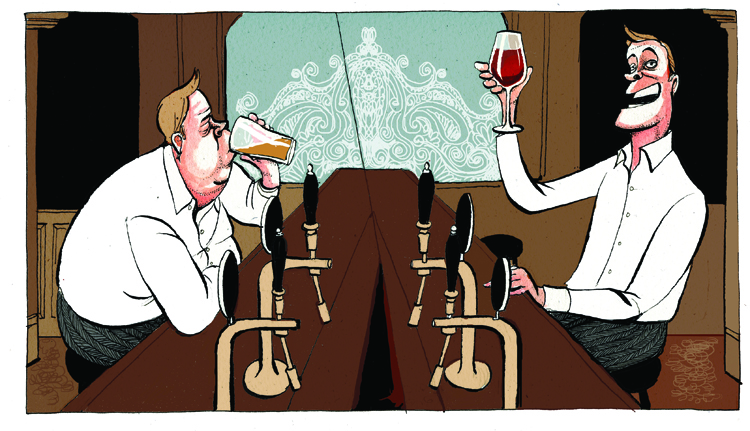
3. Old rule: Eat six small meals a day
New rule: Eat the optimal number of meals for you
Every time you eat, your metabolic rate increases slightly for a few hours. This is what’s known as the Thermic Effect of Food (TEF) – basically, your body needs to use energy to break down food. That’s where the idea that eating more often keeps you burning fat throughout the day comes from – but, crucially, the TEF is proportional to the amount of nutrients and calories you eat. So if you eat 800 calories three times a day, each meal leads to a larger, longer-lasting spike in metabolic rate than eating 400 calories six times a day. That’s the conclusion drawn by the most extensive study review ever published, which found ‘no difference between nibbling and gorging’.
What’s more important to fat loss is eating the right things, and if that’s easier to maintain over a more ‘traditional’ schedule, have at it. ‘I often recommend that people eat three meals a day, with their largest in the evening,’ says nutritionist Nate Miyaki.
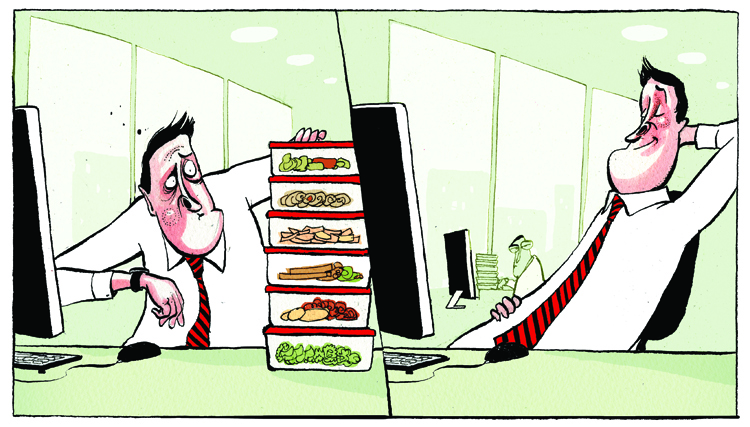
4. Old rule: Carbs are always the enemy
New rule: Carbs can be your friend
The humble jacket potato is due a revival. ‘If you’re training like an athlete, you need to refill the tank,’ says Miyaki. ‘Carbs create an anabolic, muscle-building environment, which is also consistent with fat loss. You want starches without the toxic compounds or “anti-nutrients” that can wreck the digestive system, impair nutrient absorption and leave you lethargic.’ Top of the list for refuelling is starch-rich white carbs such as rice and spuds – sweet potatoes are higher in vitamins and nutrients, but not as high in the glycogen your muscles need. Butter optional.
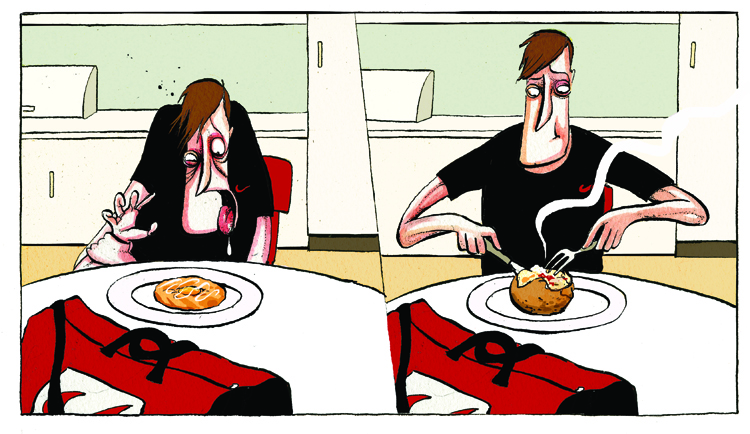
5. Old rule: Don't eat late at night
New rule: Choose the right late-night snacks
‘Avoiding food after some arbitrary cut-off time, supposedly because anything you eat after then will be stored as fat, is a myth that’s endured for decades,’ says personal trainer Russ Howe. ‘If you get home after a gym session, should you refuse to feed your body because the clock’s struck nine? Of course not. In fact, that would cause more damage.’
Research shows that eating before bed is not only fine, it’s better than not eating at all. ‘The first study to show the effectiveness of late-night protein came in 2012,’ says Howe. ‘Dutch research showed that consuming casein protein before sleep improved muscle protein synthesis by a massive 22% over a placebo. This revolutionary study also found that consuming casein late at night also improved metabolic rate, yielding greater fat loss.’
So what’s the perfect late-night feast? Try a generous spoonful of cottage cheese, or an apple and a handful of almonds. As a bonus, your blood sugar levels will be more stable, which means you’re less cranky in the morning.
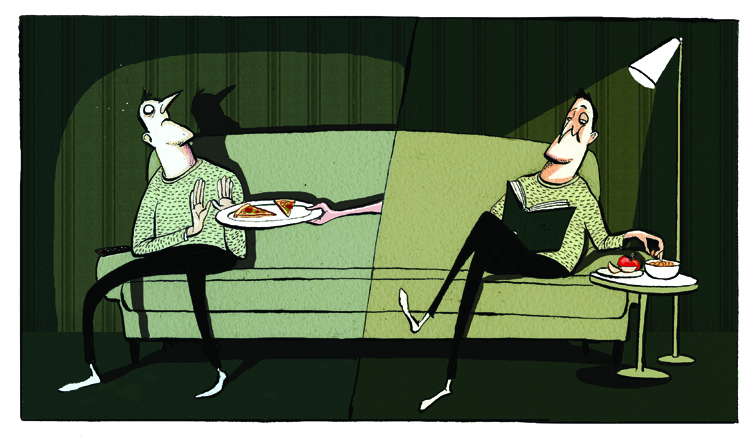
6. Old rule: Jog for fat loss
New rule: Walk or sprint
For rapid fat loss, the evidence is clear: sprint beats jog. ‘Jogging was shown to be inferior by a 2012 study published in the International Journal Of Sports Nutrition,’ says Howe. ‘One group of subjects did two minutes of sprint-based interval training, while another did 30 minutes of steady-state running. Although the 30-minute group had a 150% greater oxygen intake during their session, 24 hours later the sprint group’s oxygen consumption increased to almost the same as the endurance group. The researchers concluded that interval-based training improves metabolic rate, transforming you into a fat-burning machine in the hours that follow.’
But walking? Yes, that’s better too. ‘It’ll stress your system less and is easier to recover from than jogging,’ says Howe. ‘So it spares your muscle while giving you a fat-loss boost.’ If you like running, that’s fine, but remember it’s best for making you better at running, not for getting rid of your belly.
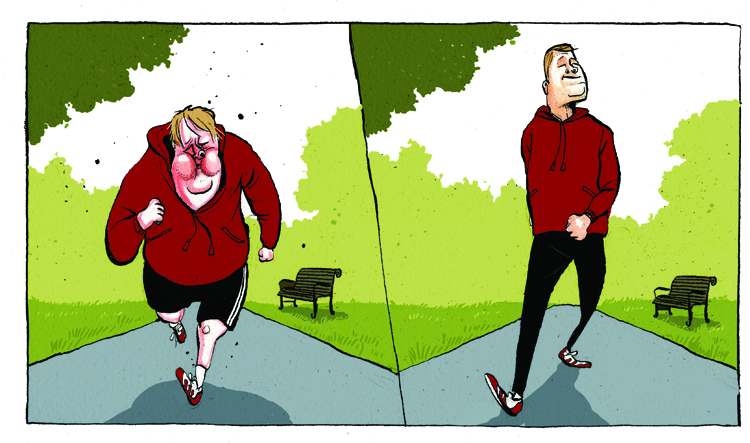
7. Old Rule: Don't skip breakfast
New rule: Missing a meal can kick-start fat loss
Yes, going into ‘starvation mode’ will slow your metabolism to a crawl. No, missing breakfast isn’t starvation. According to the American Journal Of Clinical Nutrition, you can go around three days without food before seeing a significant drop in metabolism of around 8%. In fact skipping breakfast can be an easy way to experiment with the fat-loss tactic intermittent fasting (IF), which can help you cut calories, improve insulin sensitivity and boost growth hormone production. Dietary expert John Romaniello suggests one day a week where the only thing you eat before lunch is a cup of green tea, water for hydration and four BCAA tablets to stop you losing muscle mass.
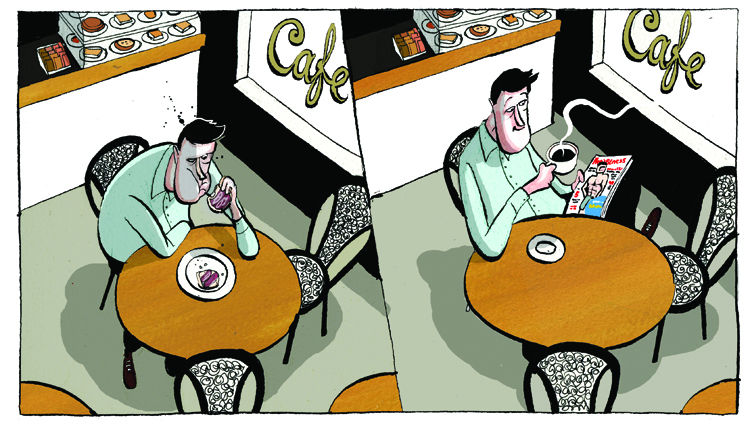
From 2008 to 2018, Joel worked for Men's Fitness, which predated, and then shared a website with, Coach. Though he spent years running the hills of Bath, he’s since ditched his trainers for a succession of Converse high-tops, since they’re better suited to his love of pulling vans, lifting cars, and hefting logs in a succession of strongman competitions.

